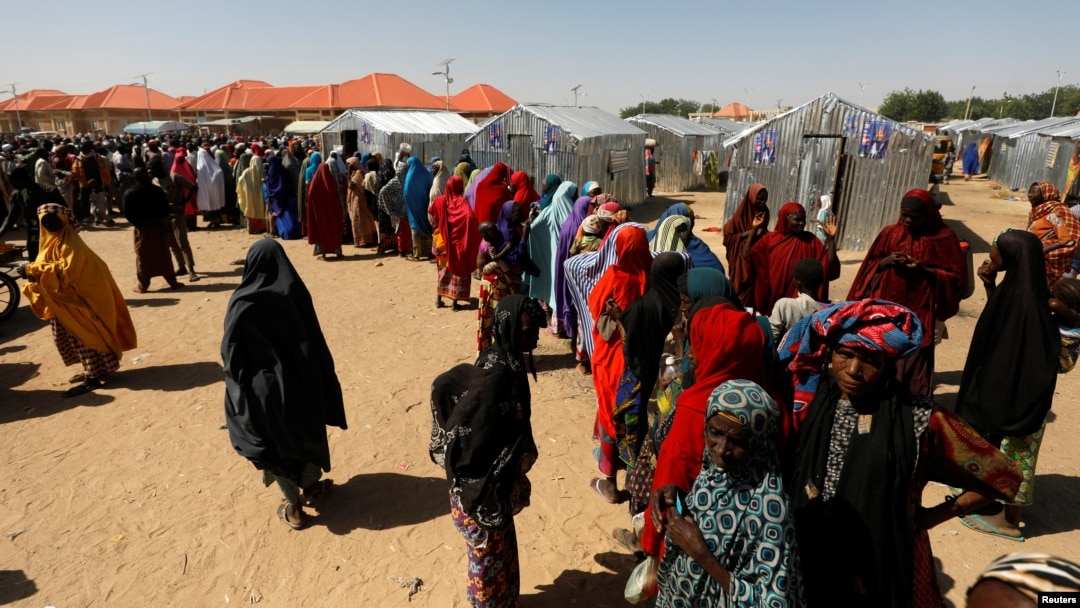A bloody conflict in northeastern Nigeria has been raging for 14 years between the army and jihadist groups, including Boko Haram.
More than 40,000 people have been killed and two million more displaced, creating one of the gravest humanitarian crises of the 21st century.
More than 100,000 people in recent years took refuge in Maiduguri, which is protected by security trenches and guarded by the army.
Most of them resided in official camps run by government authorities, who began closing them a year ago, claiming to have secured the countryside.
The move is part of a wider bid by the leaders of Borno State to close all camps by 2026 with an aim to end dependency on humanitarian aid and encourage displaced people to return to their fields.
But the result is that informal camps like El-Miskin, in the Borno capital of Maiduguri, are now overflowing and conditions are deteriorating.
For Aisha Usman, who is among those displaced by violence, the situation has made it harder and harder to feed her large family.
For eight years, Usman, her husband and their nine children have lived in the informal camp of El-Miskin, home to around 7,200 displaced people.
"They put us all in one place. We're sitting under trees doing nothing. It's like we're in jail," she said.
Yet for Usman, there is no question of returning to Gradai, her village located 200km away.
In 2014, Boko Haram jihadists attacked the family's house and killed her neighbors before her eyes. One of her children was kidnapped and never returned.
"I'm afraid they'll come back and kill us if I go back home," she said of the Islamist fighters.
Others driven from the closed sites have spilled out to the remaining official camps further afield, according to the United Nations, like in the city of Bama, 70 km southeast.
Bama has been swamped by the arrivals, some newly fleeing from the countryside where insurrections are ongoing. Its official camp for displaced people, called GSSS, was built for 25,000 people but now hosts 100,000.
"Food insecurity in Bama is severe... and has worsened since the closing of the camps in Maiduguri, with lack of land for farming due to insecurity," said Ibrahim Mohamed Kari, a doctor in a center for malnourished children.
Around 4.4 million people face food insecurity in northeast Nigeria, the U.N. says.
Nigerian authorities insist that no-one is being forced to return home, however a small financial aid payment is offered to those who go back.
President Bola Ahmed Tinubu has said solving Nigeria's complex insecurity is one of his main priorities.
But NGOs operating in the region are skeptical.
"How are we sure where they are taking them (is) safe for them to return?" asked Genesis Abamini, an official for a camp in Damboa, where nearly 30,000 displaced people are crowded.


